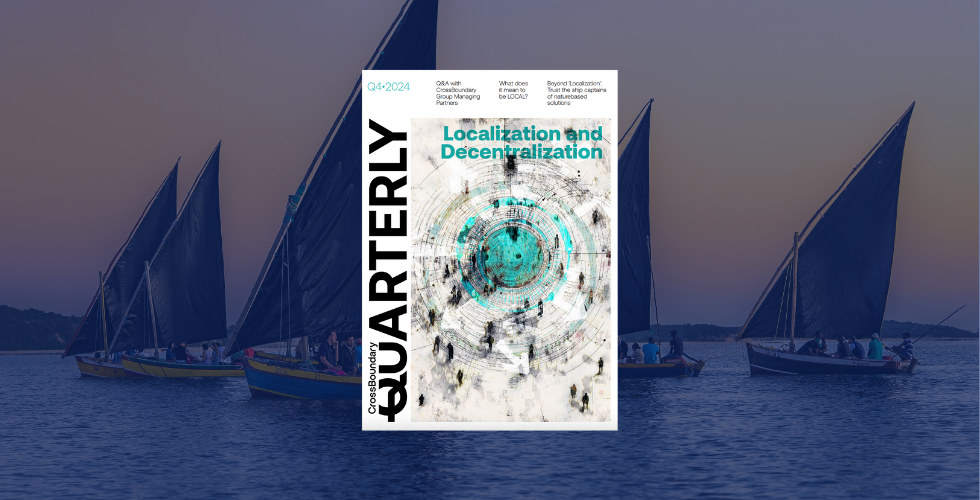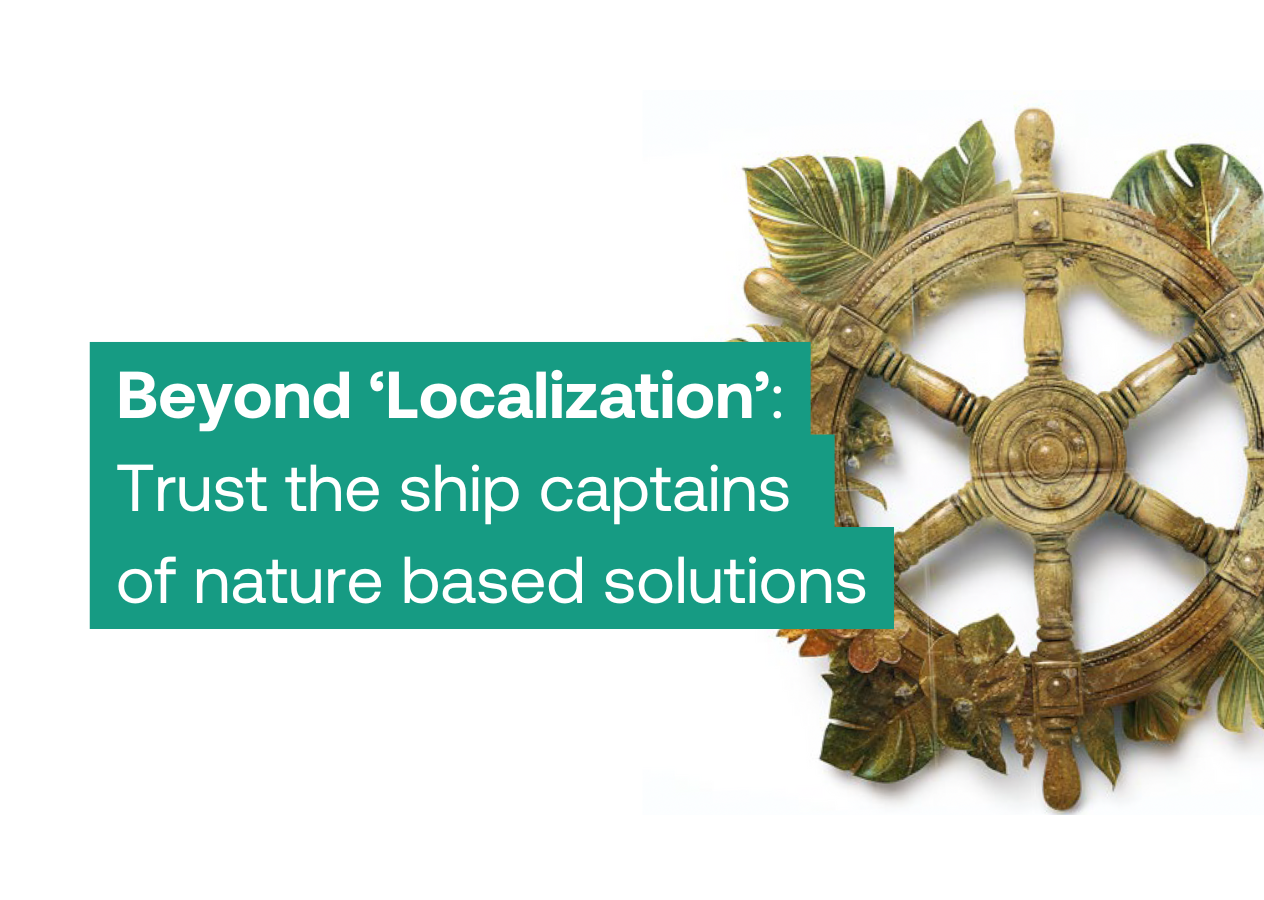
CrossBoundary Quarterly: Localization and Decentralization
Explore how Localization and Decentralization are shaping the markets where we’re active and informing how we work
Explore how Localization and Decentralization are shaping the markets where we’re active and informing how we work
The concept of localization was central to the founding of CrossBoundary. Having participated in large, top-down efforts to transform societies, our founders believed a better answer lay in bottom-up innovation and development. This wasn’t because top-down approaches are inherently bad, but rather because a bottom-up approach forces one to be disciplined by local context.
Localization and decentralization are two mega-trends that are shaping the investable landscape across underserved markets. The donor community and global investors are seeking greater participation from local partners, partly to drive greater impact, but also to capture more granular insights on market developments.
For our part, CrossBoundary Energy and CrossBoundary Access are deploying bespoke solar-energy solutions that accelerate the decentralization of electricity generation and distribution. This is enabling more flexible, resilient energy systems that expand access while reducing dependence on sclerotic centralized utilities. But much work remains to be done.
The power of localization lies in its ability to tailor solutions to specific contexts, acknowledging that one-size-fits-all approaches often fall short in addressing complex societal and commercial challenges. By embracing localization, organizations can tap into the wealth of knowledge and expertise that exists within communities, leveraging local insights to develop more effective and sustainable solutions. This approach not only enhances the likelihood of success but also fosters a sense of ownership and empowerment among local stakeholders.
Decentralization, which is closely linked to localization, involves the distribution of power, decision-making, and resources away from central authorities. In the context of development and investment, this trend is reshaping how projects are conceived, implemented, and managed. By decentralizing processes, we believe more agile and responsive systems that are better equipped to address the unique needs of diverse communities can emerge.
The shift towards localization and decentralization is not without its challenges, however. It requires a fundamental rethinking of traditional power structures and a willingness to cede control to local actors. This can be particularly challenging for large international organizations accustomed to top-down approaches. However, the potential benefits far outweigh the difficulties of transition.
In the realm of energy, the impact of these trends is particularly evident. The traditional model of centralized power generation and distribution, often characterized by inefficiency and unreliability in underserved markets, is giving way to more nimble, decentralized solutions. Solar energy, as Matt Tilleard recently stated to The Economist, is at the forefront of this transformation in Africa.
The decentralization of energy systems also has profound implications for resilience. In regions prone to natural disasters or political instability, centralized grids can be vulnerable to widespread outages. Decentralized systems, on the other hand, can continue to function even if parts of the network are compromised, ensuring a more reliable power supply.
Looking ahead, the trends of localization and decentralization are likely to accelerate, driven by technological advancements, changing investor preferences, and a growing recognition of the limitations of centralized approaches. However, realizing the full potential of these trends will require continued innovation, policy support, and a commitment to genuine partnership with local communities.
In this edition of the CrossBoundary Quarterly, we dive into these two mega-trends and explore how they’re shaping the markets where we’re active. We begin with an interview featuring Jake Cusack, Matt Tilleard, and Tom Flahive, CrossBoundary’s Managing Partners. Next, Nneka Chime, a Partner in our Advisory business, asks the question: what does it mean to be local? Finally, in a fitting homage to the late James C. Scott, Kate Wharton, Managing Director of our Natural Capital team, explores the role of local partners as “boat captains” who play a crucial role in getting projects through to completion. And CrossBoundary Energy shares how decentralizing energy approvals in Africa can unlock industrial sectors.
We hope you enjoy this issue and please reach out to us with your comments and questions.


